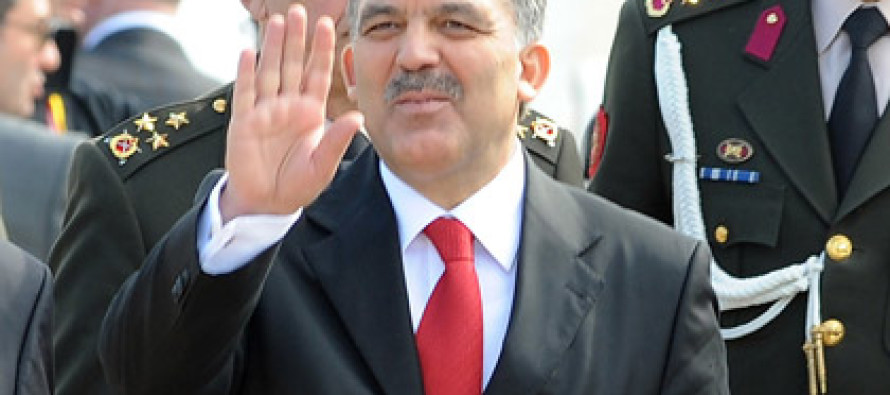Turkish President’s Visit to Bangladesh: A new horizon of economic cooperation

Both Bangladesh and Turkey are strategically located. While Bangladesh is a bridge between South Asia and South East Asia, Turkey is located in both Europe and Asia and has been a gateway to Europe from Asia.
Given this context, Turkey’s President Dr. Abdullah Gul’s two-day state visit to Bangladesh on 12-13 February assumes importance because economic cooperation between the two can eventually lead economic cooperation between Europe and Asia.
The Turkish President’s visit has been the first trip of any head of states to Bangladesh since the Sheikh Hasina government assumed power in January 2009. The President came to Bangladesh after his visit to India.
Dr. Gul was elected as the President in August 2007. He previously served for five months as Prime Minister from 2002 to 2003, and as Minister of Foreign Affairs from 2003 to 2007.
Bangladesh’s relations with Turkey are excellent and mutually supportive and they have been nourished by the successive governments of both countries through high bilateral visits.
President Zillur Rahman of Bangladesh visited Istanbul for four days from 6th November 2009 to attend an OIC summit, met the Turkish President and invited him.
Prime Minister Sheikh Hasina called on the Turkish President. During the meeting, the Turkish President assured to provide support for power generation, transport, information and communication technology, road infrastructure and other development sectors in Bangladesh.
The opposition leader Begum Khaled Zia also called on the Turkish President and recounted the development of close relations with Turkey when she was in power. She also said that Bangladesh would be happy if Turkey became a member of the European Union.
During the visit one agreement was concluded between the Federation of Bangladesh Chambers of Commerce and Industry and the Union of Chambers and Commodity Exchanges of Turkey and one MoU between the Turkish Investment firm RHEA and Bangladesh Dana Group was signed with the objective of lending $1 billion to finance infrastructure projects in Bangladesh.
The Turkish President at the banquet on 12 February appreciated the targets Bangladesh government has set to achieve by 2021 and said: “We will continue to stand by our Bangladeshi sisters and brothers”.
President Gul rightly said that the present level of economic and commercial relations was far from reflecting the potentials of the two countries and their people ( bilateral trade volume during 2008-2009 was only $409.14 million, $331.53 million for Bangladesh exports and imports from Turkey stood at $77.51 million).
Finance Minister of Bangladesh A. M. A. Muhith attended the Bangladesh-Turkey Joint Economic Cooperation in Turkey from 17 to 20th November 2009. Observers believe the trade volume between Turkey and Bangladesh could exceed $1 billion if the two countries engage in a comprehensive commercial and economic cooperation. .
During the visit to Bangabandhu Sheikh Mujib Medical University, Turkish Minister for Health Prof. Recep Akdag gave the assurance that his country would help build a new wing at the university and would send a four-member delegation to Bangladesh soon to assess the needs of the university.
Both countries attach great interest in economic activities of OIC. Turkey took the initiative to constitute the D-8 Commission of eight Muslim populous countries in which Bangladesh was included. The D-8 Commission has identified co-operation in areas, such as, rural industrialisation and micro-credit, human resource development, industrial and technological data bank work, designing and production of agriculture aircraft prototype.
The ties of Bangladesh people to Turkey deep and people of Bangladesh have great respect to the Turkish leader Kemal Ataturk (father of the Turks), the founder of modern Turkey.
Bangladesh’s national poet late Kazi Nazrul Islam in the 20s and 30s wrote many poems in which he lauded the leadership of Kemal Ataturk. He praised the heroic spirits of the Turks for its independence under the leadership of Kemal Ataturk. Poet Nazrul Islam’s verse: “Kemal tune Kemal Kiya Bhai–Oh brother Kemal, what a wonder you have achieved” demonstrates sentiments of admiration for the Turkish leader.
Kemal Ataturk’s reforms which emancipated Turkish women had profound influence on the educated Muslim women in Bengal. His policy on separation of religion from state attracted Bangabandhu Sheikh Mujib, the founder of Bangladesh.
Both countries share common history, traditions, faith and culture. People of both countries have deep commitment to democracy and other liberal traditions. Both people fought to achieve their independence.
The visit of the Turkish President has opened up a new horizon of economic and commercial cooperation between the two countries. Turkey is now the 6th largest economy in Europe and 16th in the world and Bangladesh is conveniently located between China and India.
During the 21st century success of a country is judged by interactions within the regional and intra-regional economic blocs to turn a country into a hub of economic activities. Against this background, one needs to identify the challenges confronting Turkey and Bangladesh in addressing them with determination, imagination and innovation.
By Barrister Harun ur Rashid
Former Bangladesh Ambassador to the UN, Geneva


